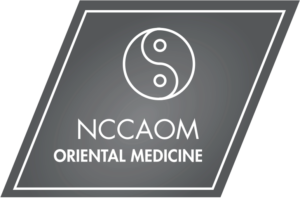Acupuncture and Chinese herbs can be so effective for such a wide variety of health concerns, yet it’s still looked upon as a mysterious and foreign practice in the United States. I’ve written here about how some of us in the profession are actually working toward reinforcing these stereotypes. Considering this it’s not surprising that many do not avail themselves of these modalities and that’s a real shame because they can help so much. I want to talk a little bit about another thing that gets in the way which is that people don’t often know how to integrate this work into their lives. I’m going to present two statements that I’ve heard actual people say about acupuncture and discuss them a little bit. Keep in mind, a willingness to try something that you may not understand and that might cause slight discomfort is a key prerequisite for experiencing the benefits that Chinese medicine has to offer.
“I need to make sure there’s nothing “medical” going on first”
It should be stated that no healthcare practitioner of any kind should discourage a patient from pursuing a treatment that they believe could help them, so of course I would encourage a patient to get blood work, imaging, or any other diagnostic test in order to figure out how to best proceed with their health. However, the western medical system has a habit of sending people from specialist to specialist to find answers. Sometimes those specialists have long waiting periods to see them, and often they’ll refuse to comment on a particular symptom if it doesn’t fall under their area of expertise. The quest for answers can be long and arduous, and too frequently ends in a deflating series of “we can’t find anything wrong with you”. Though the western medical system is sophisticated and has life saving therapies available, this is what many people encounter. In the meantime, Chinese medicine can provide relief with just one office visit. Since we treat patterns and not illnesses, there’s always an imbalance that can benefit from a gentle push in the right direction. If there’s a suspected tumor that hasn’t been found yet, or something just as devastating that has yet to be discovered, acupuncture isn’t going to make it worse. It gives your body an energetic input so that you can begin to re-balance yourself. It’s highly paradoxical for people to have a fear of disastrous consequences from acupuncture but at the same time assign it no power to do anything good. Acupuncture isn’t black magic.
“Once I start doing acupuncture don’t I have to keep coming for a long time?”
I’m not sure exactly where this question came from but I’ll speculate. Acupuncture works with a type of vital life-force energy called Qi. Other traditions have similar concepts such as Prana, which comes from yoga and Ayurveda. This kind of energy cannot be observed or measured by instruments based on the science and technology of today, but it is nonetheless real. As practitioners, we know it’s real because of its responsiveness (a more thorough discussion of this concept will be the topic of a future blog post). I explain to first-time patients that Qi moves slowly and that its effects are not always obvious right away. Perhaps the person who asks this question has a feeling that this might be the case. They might wonder, how will we know when the course of treatment is over? Or does it just go on and on as we make minor adjustments to their Qi without them ever really feeling any kind of change?
The answer to these questions depends on what the patient is hoping to accomplish. I’ve had patients come to see me for acute pain, dizziness, panic attacks, headaches and other problems. Usually within 2-4 treatments these symptoms have either become much more manageable or gone away completely. I tend not to see those patients after that. I also have patients that I’ve been seeing for much longer, and they come in around once every 2-4 weeks. We talk about their health and what’s been going on, usually touching base on the things that keep coming up for them. Sometimes these patients are older, and they and I both know that their symptoms won’t ever completely resolve, but we manage those symptoms with regular treatments. They also enjoy feeling the nice energetic boost and centering that comes from acupuncture. To them it’s more or less like getting a regular massage but from an energetic standpoint.
I hope this has helped shed light and alleviate some confusion regarding how to integrate Chinese medicine into your life. The doctor archetype is so deeply ingrained in our culture that to try and think a little outside of the box can feel disorienting or uncomfortable. Ultimately we’re here to help and to fill in some gaps that the western medical system has left open. It’s not an adversarial relationship but a complementary and supportive one.


